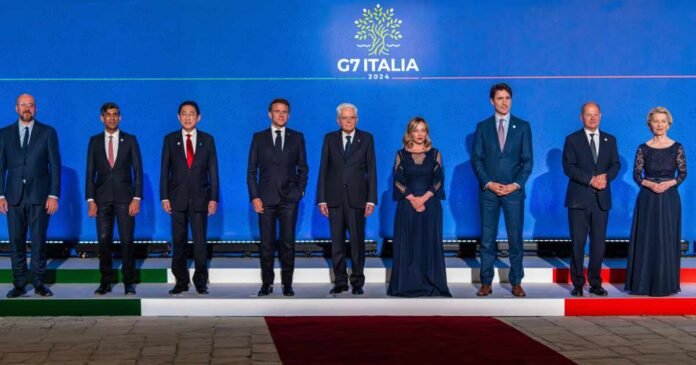Every year, the leaders of the world’s wealthiest large democracies come together for a summit, prompting the question: What is the purpose of this gathering, and why does it matter?
The Group of 7 (G7) nations — comprising Britain, Canada, France, Germany, Italy, Japan, and the United States — began their annual summit on Thursday at a luxury hotel in Puglia, located on the southern Italian coast overlooking the Adriatic Sea. This year, the wars in Ukraine and Gaza, as well as the economic challenges posed by China’s rise, are high on the agenda.
These leaders, joined by representatives from the European Union and selected guests, convene to discuss significant economic and international policy issues. This year’s host, Italian Prime Minister Giorgia Meloni, has extended invitations to notable figures such as Pope Francis and Indian Prime Minister Narendra Modi.
Despite potential disagreements on specific issues, the summits usually exhibit a shared overall outlook. The G7 nations are major trading partners and, though their share of global trade has diminished, they still represent about half of the world economy. They hold broadly similar views on trade, security, and human rights, which gives them substantial influence when they act together. A recent illustration of this unity is their collective support for Ukraine amidst the Russian invasion. Ukrainian President Volodymyr Zelensky, whose defense efforts have galvanized the G7, is attending the summit once again this year.
In contrast, Russian President Vladimir V. Putin is a notable absentee. Russia was part of the group from 1997 until its exclusion in 2014, following its military actions in eastern Ukraine and the annexation of Crimea.
The G7’s origins date back to the 1973 oil crisis. It began as an informal gathering of finance ministers from Britain, France, Japan, the United States, and West Germany — initially known as the Big Five — to devise a collective response to global economic challenges.
Over the years, the group, with its expanded membership, has met numerous times to address major international economic, security, trade, equality, and climate change issues. In 2015, the G7 summit played a crucial role in paving the way for the Paris Agreement aimed at limiting global carbon emissions.
The nature of these summits often reflects the most pressing global issues of the time. For instance, the meetings have been dominated by events such as the September 11 attacks in 2001, the financial crisis of 2008, and the coronavirus pandemic that began in 2019.
